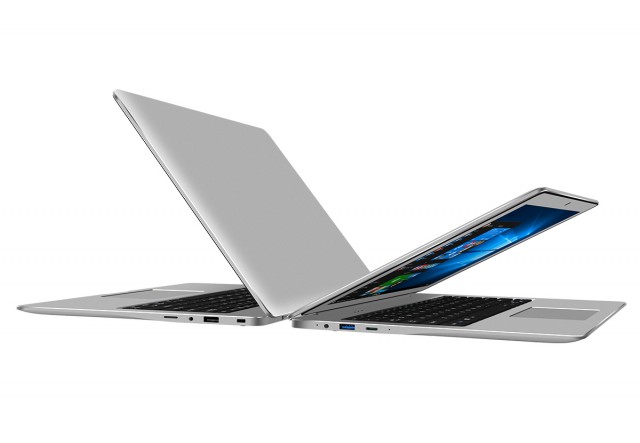
Chuwi LapBook 12.3 costs $349, launches in May
I walked away impressed after reviewing the Chuwi LapBook 14.1. There's something charming about a laptop that gets the basics right at an affordable price point. The new LapBook 12.3 is shaping up to be even more impressive, featuring more attractive hardware at a still-competitive price.
The LapBook 12.3 is designed for consumers in the market for a more portable laptop, featuring a 12.3-inch display with a 3:2 aspect ratio and a resolution of 2,736 by 1,824. That's pretty impressive for a budget offering, considering that there are premium laptops that ship with lesser screens.
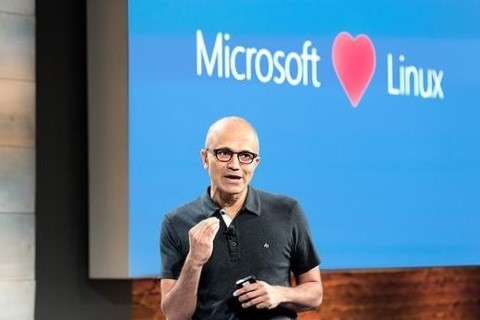
How to upgrade Bash/Windows Subsystem for Linux in Windows 10 Creators Update
You can't help but have noticed that Microsoft has started the rollout of Windows 10 Creators Update. After testing with Windows Insiders, the third big update to Windows 10 is finally making its way to the masses. But while Creators Update brings some pretty major changes to Windows 10, Windows Subsystem for Linux is not automatically updated.
The arrival of Bash/Windows Subsystem for Linux (WSL) in Windows 10 Anniversary Update meant Ubuntu 14.04 support, but you can now manually update to gain Ubuntu 16.04 support in Creators Update. Microsoft says you need to perform one of two manual update methods: the recommended option of "Remove & Replace", or "Upgrade In-Place." Here's how to perform the update.

Ubuntu Linux 17.04 'Zesty Zapus' is here
Today is finally the day. Ubuntu 17.04 "Zesty Zapus" is available for download. No, this is not an Alpha or Beta, but an official stable version of the Linux-based operating system. Unfortunately, the release is a bit tainted -- it uses Unity as the official desktop environment, which Canonical has announced will be killed. Not to mention, there has been some controversy regarding some comments by Ubuntu founder Mark Shuttleworth. Just yesterday, the CEO of Canonical announced she is leaving the position.
With all of the aforementioned controversy and chaos, it is understandably hard to get too excited for "Zesty Zapus," especially as this is not a long term support version. With that said, if you are an existing Ubuntu user that likes Unity, this is certainly a worthwhile upgrade if you are OK with the shorter support. Unity may no longer have a future, but version 7 will continue to be supported -- for a while, at least.

Ubuntu Linux uncertainty continues as Canonical CEO walks away
Ubuntu is in a very weird and uncertain place right now. If you have been following the Linux distribution lately, you would know that Canonical dropped some bombshell news that it was killing the Unity desktop environment, along with its tablet, phone, and convergence plans. This was shocking, as the company sunk a lot of resources into these things, and now it looks like all that time and money was wasted.
Then, Ubuntu founder Mark Shuttleworth insulted the free software community, going so far as to compare the hatred towards Mir to the gun control debate. Now today, following rumors and speculation, Canonical CEO Jane Silber announces she will be stepping down and walking away from the position -- ultimately handing the reigns to Shuttleworth. She will remain on the company's board of directors, however.

Ubuntu founder Mark Shuttleworth insults free software community, compares Mir to gun control debate
When it comes to Linux on the desktop, I am primarily a Fedora user. Sure, I like trying out other distributions for fun, but I always return to the wonderful Fedora. Heck, I even mess around with Ubuntu on occasion, although I am not a huge fan of Unity -- I love GNOME. With that said, when Mark Shuttleworth, Ubuntu founder, recently announced that he was killing the Unity desktop environment and embracing GNOME, I was quite happy. It signaled less fragmentation and division in the Linux community.
My happiness was short lived, however, as Mark Shuttleworth has been insulting the free software community on social media. Over on Google+, he even goes so far as to compare the hate for the MIR display server to the debates on gun control and climate change. Really, Mr. Shuttleworth? In his vulgarity-laced rant, he even calls members of the free software community "deeply anti-social types." Gee, thanks a lot.

Canonical killing Unity for Ubuntu Linux, will switch to the superior GNOME
Unity is a fine desktop environment, but many users of Ubuntu hate it. In fact, due to how much negativity there is towards the DE, Linux Mint has experienced popularity thanks to Cinnamon and Mate. Quite frankly, maintaining Unity has been somewhat foolish for Canonical -- a waste of resources and money when there are plenty of wonderful existing environments.
Today, the company admits that it is throwing in the towel on Unity, as well as its vision for convergence with devices like phones and tablets. Starting with Ubuntu 18.04, the wonderful GNOME will once again become the default desktop environment!

Ubuntu Linux 17.04 'Zesty Zapus' Final Beta now available for download in multiple DE flavors
When someone is interested in trying a Linux-based desktop operating system for the first time, they often choose Ubuntu. This is a smart choice, as it is easy to use, well supported, and quite beautiful. Even if you don't like the Unity desktop environment, there are several other DEs, or flavors, from which to choose -- GNOME, KDE, and Xfce to name a few.
Today, the Final Beta of Ubuntu 17.04 'Zesty Zapus' becomes available for download. While it is never a good idea to run pre-release software on production machines, Canonical is claiming that it should be largely bug free at this point. In other words, if you understand the risks, it should be fairly safe. Home users aside, this is a good opportunity for administrators to conduct testing prior to the official release next month.

Canonical announces Ubuntu Linux 12.04 ESM (Extended Security Maintenance)
On April 25th, Ubuntu Linux 12.04 LTS will no longer be supported by Canonical. Why? That is the 5 year anniversary of the release, which is the amount of support time given to an LTS (Long Term Support) version of the Linux distribution.
For many home users, this really doesn't matter, as they have probably already upgraded to a newer version. Unfortunately, some businesses do not upgrade as regularly. In fact, some organizations may not be ready to move on from Ubuntu 12.04. Tough luck? Not at all. Today, Canonical introduces Ubuntu Linux 12.04 ESM. This "Extended Security Maintenance" release is not free, however -- organizations must pay for the extended support.

Ubuntu Linux-maker Canonical wins award for convergence efforts
In computing, convergence -- having a single device to serve many roles -- is a popular idea. Using the power of a smartphone to serve as a desktop, for instance, is a great way to save money and reduce waste. Unfortunately, there really have not been any successful convergence devices in practice. Microsoft famously tried with Windows 10 Mobile, but consumers didn't seem to care about Continuum.
Luckily, Canonical seems fairly unfazed, as the company continues to see Ubuntu as an operating system that can run on phones, tablets, laptops, desktops, and more. Like Windows 10 Mobile, Ubuntu phones have failed to pique the interest of consumers, but Linux-based solutions are arguably more appropriate for convergence thanks to the kernel's ability to work well on ARM. To highlight the success of Ubuntu in this regard, Canonical has been given an award at Mobile World Congress 2017.
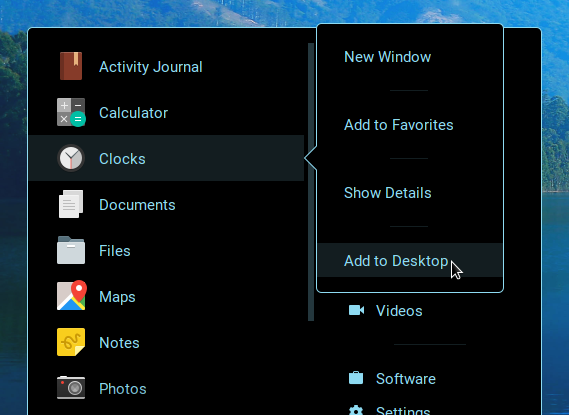
Zorin OS 12.1 Ubuntu-based Linux distro is here for Microsoft Windows 10 switchers
While Windows 10 is a great operating system, it isn't perfect for everyone. In fact, Microsoft's offering is viewed by some to be bloated and complicated. Depending on your needs, yeah, I suppose I understand that. After all, if you live in the web browser, and don't need Windows programs, a Linux-based desktop OS could be a better choice, as it might perform better on lesser hardware. Not to mention, there are far fewer malware threats on Linux than on Windows.
If you have been thinking of switching to Linux, there are a lot of choices nowadays, but there is one such operating system designed for that purpose. Zorin OS aims to be familiar to Windows users, while its Ubuntu base makes it easy to manage and install packages. Today, Zorin OS reaches version 12.1. While it is not a massive update by any means, existing users should definitely upgrade. If you have never tried Zorin OS before, now is as good a time as any.
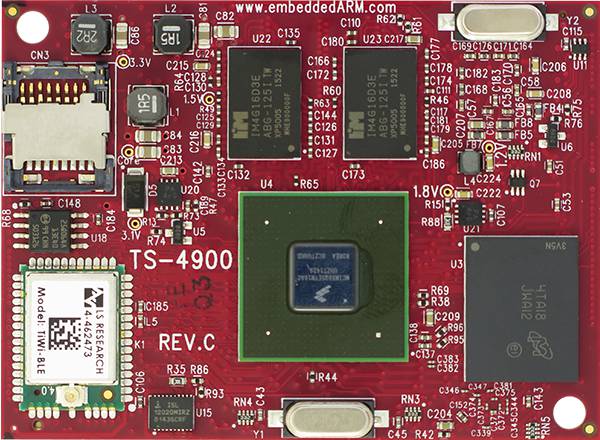
Ubuntu Core Linux comes to i.MX6-powered IoT-friendly TS-4900 Computer On Module
One of the best things about the Linux kernel (and associated operating systems) is the ability to work on various hardware types, including ARM. Microsoft's operating systems, by comparison, are far more narrow. True, there is the lightweight Windows 10 IoT for ARM boards, but it is hardly a factor nowadays.
Today, Ubuntu Core comes to the i.MX6-based and ARM-powered TS-4900 Computer on Module. While Android and other Linux options were already available for the IoT-friendly CoM, Ubuntu Core is still a major win. Canonical's revolutionary snap packages should work beautifully here.
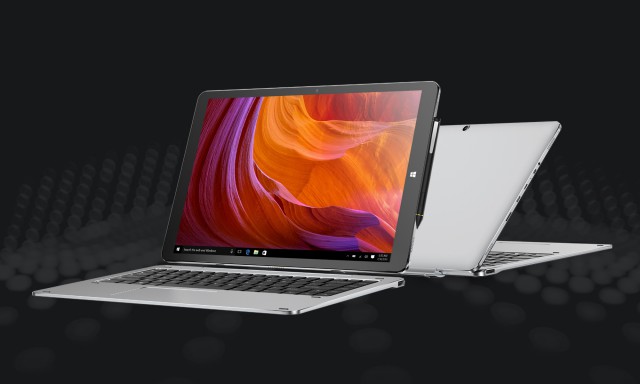
Chuwi's Hi13 Windows 10 hybrid retails for $369, promises Ubuntu support
The Chuwi Hi13 is a very interesting proposition in the Windows tablet market. It has a display similar to that of the Microsoft Surface Book, support for a detachable keyboard and stylus, expansion ports, and competitive internals, but, unlike the devices that it has in its crosshairs, it features a really attractive price tag.
When I discussed the Hi13 earlier this year, I mentioned that Chuwi expected to sell the device for around $500 or less, which seemed like a fair price considering everything that it has to offer. However, as it turns out, the Hi13 will actually retail for much less -- $369 to be exact. The value proposition is hard to beat.

Linux Mint 18.1 'Serena' KDE Edition Beta is available for download now
A Beta release for Linux Mint 18.1 'Serena' KDE is here. There are already versions available featuring other desktop environments, such as Cinnamon, Mate, and Xfce. You'd think that would be enough, but no! Apparently a fourth edition is needed. Some people feel that a KDE version is a waste of resources, but either way, here we are.
So what is new? The KDE Plasma 5.8 desktop environment is the star of the show -- after all, if you do not want KDE, you wouldn't choose this version. The shipping Linux kernel is 4.4.0-53, which is surprisingly outdated. Ubuntu-based operating systems are never known for being bleeding-edge, however.
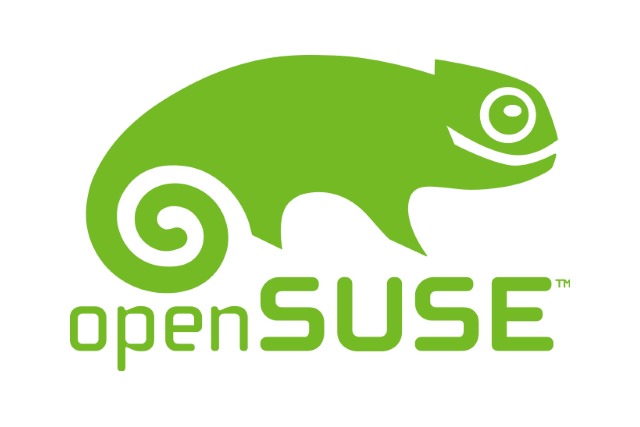
How to run openSUSE Leap 42.2 or SUSE Linux Enterprise Server 12 on Windows 10
Linux and Windows living happily side-by-side is not something many people would have predicted, but Windows 10 Anniversary Update saw the arrival of Bash on Ubuntu thanks to the Windows Subsystem for Linux. Not everyone was happy with Microsoft's choice of Ubuntu, with many preferring a different flavour of Linux.
Senior Product Manager for SUSE Linux Enterprise, Hannes Kühnemund, is -- unsurprisingly -- one of those whose taste buds were not tantalized by Ubuntu. He would rather you ran SUSE on Windows 10. In fact he doesn't just want this to happen, he tells you how to do it -- specifically with openSUSE Leap 42.2 and SUSE Linux Enterprise Server 12 SP2 -- so you too can run Linux binaries natively on Windows.

Fans of System76 Ubuntu Linux computers can win a trip to the company's Denver headquarters
If you like macOS, you buy an Apple computer. Fans of Windows 10 can choose a Surface, HP, Toshiba or something else. If you are an Ubuntu user, and you want a machine pre-loaded with the operating system, however, what do you do? For those in the know, there is a company that caters to Linux users' needs -- System76. The company sells desktops, laptops, and servers running Canonical's Linux-based OS.
Not only are System76 computers both affordable and powerful, but they come with excellent support too. It is because of these things that the company has built a solid reputation and gained many fans. In 2015, System76 held a special "Superfan" event at its Denver headquarters. To pick attendees, it held a contest where fans could win a trip there. Because of the event's popularity, the company is hosting another. Dubbed "Superfan II", System76 is once again holding a contest, with up to eight trips to Denver (hotel and airfare) as the prize.
